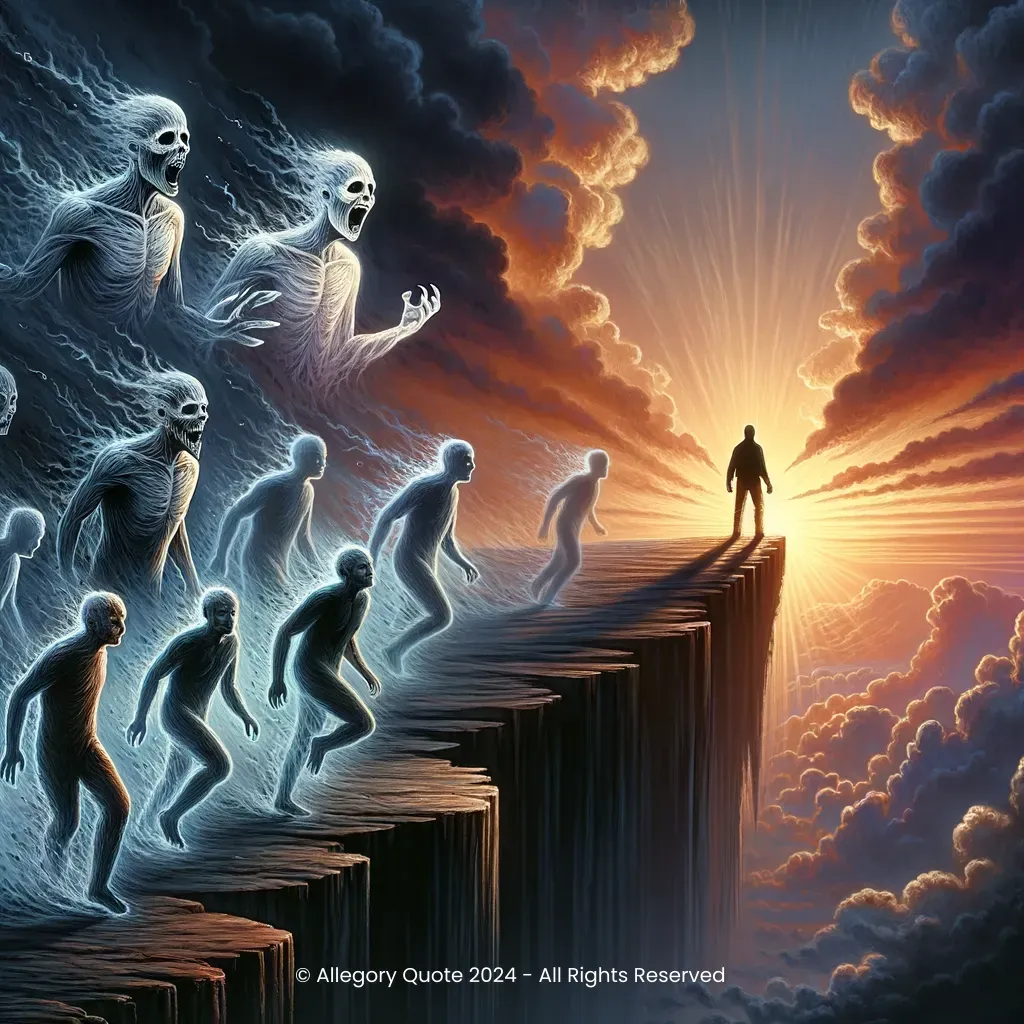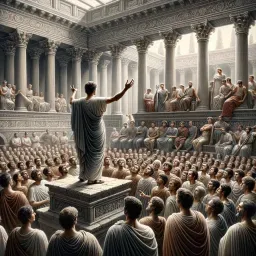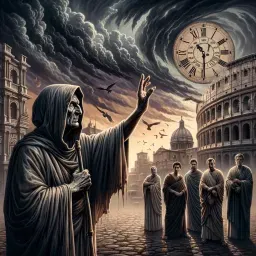”Cowards die many times before their deaths;
the valiant never taste of death but once“

0
0
0
0
- Meaning
- The meaning of this phrase delves into the psychological effects of fear and bravery. Shakespeare contrasts the experiences of cowards and the valiant by asserting that cowards 'die many times' due to their constant fear and anxiety, which can feel like a series of small, inner deaths. Their dread of what might happen leads them to live in a state of perpetual apprehension. On the other hand, brave individuals confront life and its potential dangers head-on, thus only facing the inevitability of death once. The phrase praises courage and criticizes cowardice, emphasizing that living in constant fear diminishes one's quality of life.
- Allegory
- This image uses the juxtaposition of a ghostly, fearful figure and a strong, resolute one to visually convey the internal struggles of cowardice versus bravery. The chasm represents the unknown challenges and fears we all face. The multiple faint images of the coward signify the constant dying due to pervasive fear. In contrast, the valiant figure’s single strong shadow indicates their steadiness and acceptance of mortality as a singular, natural event. The sunrise through dark clouds portrays hope and renewal, highlighting that bravery can overcome the darkness of fear and lead to enlightenment and peace.
- Applicability
- This teaching can be applied to personal life by encouraging individuals to face their fears rather than avoiding them. Embracing courage can lead to a more fulfilling and authentic life. In practical terms, this could involve taking calculated risks, confronting difficult situations, and not allowing fear to dictate your actions. It reminds us that while avoiding fear might seem to preserve life, it may actually diminish it.
- Impact
- This phrase has had a profound impact on literature and culture, often cited to emphasize the virtue of bravery and the futility of living in fear. It has inspired numerous discussions on the nature of courage and has been referenced in various forms of art, literature, and motivational contexts.
- Historical Context
- Shakespeare's "Julius Caesar" was written around 1599. The phrase reflects the Renaissance humanism of the time, which emphasized the potential for individual greatness and the importance of bravery and honor. The play is set in ancient Rome during Julius Caesar’s final days, mirroring the political intrigue and personal valor that characterized both Shakespeare’s era and that of Caesar’s Rome.
- Criticisms
- Critics might argue that the phrase oversimplifies human emotions by categorizing individuals strictly into 'cowards' or 'valiant' without recognizing the nuanced spectrum of human experiences. Moreover, in contemporary discussions, there is also an understanding that fear can sometimes be a rational and survival-oriented response, not necessarily a sign of cowardice.
- Variations
- Variations of this phrase include different cultural perspectives on bravery and fear. For instance, in Japanese culture, the concept of "bushido" (the way of the warrior) emphasizes that a true warrior faces death with indifference, similar to the valiant notion in Shakespeare’s quote. Across cultures, variations may stress the importance of living honorably without being paralyzed by the fear of death or failure.
-

The golden age is before us, not behind us.
-

Out, out brief candle!
-

The better part of valor is discretion.
-

All the world's a stage, and all the men and women merely players.
-

Friends, Romans, countrymen, lend me your ears.
-

Beware the Ides of March.
-

O brave new world, that has such people in't!
-

A little more than kin, and less than kind.
No Comments